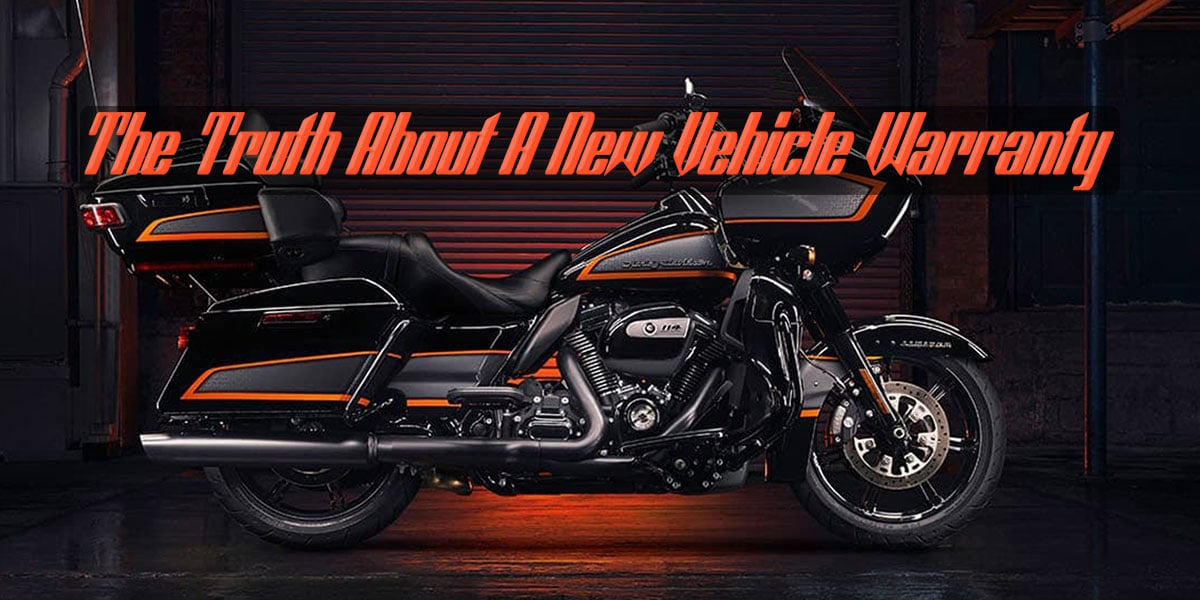
Air & Fuel
Air Cleaners and Fuel Injection Tuners for Harley Davidson® and Indian® Motorcycles. Thundermax Makes the Most Comprehensive Auto-Tuner on The Market that Includes Wideband O2 Sensors. Dyno Jet Power Vision and Power Commander EFI Tuners Have Been an Industry Standard for Years. Vance & Hines FP4 EFI Auto Tuners Are Very User-Friendly Today. In Addition to A Tuner, An Air Cleaner Is a Must-Have for A New Exhaust. Because It’s so Important, Get One Right Here, Right Now!
Understanding the Magnuson-Moss Warranty Act: A Guide for Motorcycle Owners
If you’re considering installing aftermarket performance parts like exhaust systems or engine tuners on your Harley-Davidson or Indian motorcycle, you might worry about voiding your factory warranty. The good news is that federal law provides strong protections. Below is a clear outline of the Magnuson-Moss Warranty Act (MMWA), a 1975 federal law designed to protect consumers from unfair warranty practices. This guide focuses on how it applies to aftermarket parts, based on official sources and real-world examples relevant to motorcycles.
What Is the Magnuson-Moss Warranty Act?
- The MMWA is a federal law that regulates written warranties on consumer products costing more than $10, including motorcycles and their parts.
- It requires warranties to be clear, easy to understand, and available for review before purchase. Warranties must be labeled as either “Full” (meeting strict federal standards for comprehensive coverage, like free repairs or replacements) or “Limited” (offering less coverage, such as excluding labor costs).
- The law prohibits deceptive practices, such as warranty terms that seem to offer coverage but don’t, or clauses that unfairly limit your rights.
- It also protects “implied warranties” (automatic protections under state law, like the product being fit for its intended use), which can’t be fully disclaimed if a written warranty is provided.
How Does the MMWA Apply to Aftermarket Parts?
- Installing aftermarket parts, such as exhaust systems or engine tuners, does not automatically void your motorcycle’s warranty. The MMWA prevents manufacturers from denying coverage just because you used non-original equipment manufacturer (OEM) parts or had repairs done by an independent shop.
- Manufacturers cannot include “tie-in” clauses that require you to use only their branded parts or authorized dealers to maintain warranty coverage, unless those parts/services are provided for free or the manufacturer gets a special waiver from the FTC proving the product won’t function without them.
- If a problem arises after installing an aftermarket part, the manufacturer can only deny your warranty claim if they prove the aftermarket part directly caused the issue. The burden of proof is on them—not you. For example, if an engine failure occurs, they must show evidence linking it to your tuner or exhaust, not just assume it did.
Special Considerations for Motorcycle Owners
- Motorcycle manufacturers like Harley-Davidson have faced FTC enforcement under the MMWA. In 2022, the FTC took action against Harley-Davidson for illegally restricting customers’ “right to repair” by voiding warranties if owners used independent dealers or aftermarket parts instead of authorized ones. The company was required to update its warranties to explicitly state that using third-party parts or shops won’t void coverage and to notify customers of these rights.
- This case highlights that even if your warranty includes clauses about “authorized” parts, the MMWA overrides them unless the manufacturer can prove causation. It promotes competition, potentially lowering repair costs for owners of Harley-Davidson or Indian motorcycles.
- Note: While the MMWA applies broadly, always review your specific motorcycle warranty for any limited clauses. However, federal law ensures these can’t be used to unfairly deny claims.
Your Rights as a Consumer
- Choice of Parts and Services: You have the right to use aftermarket performance parts or independent mechanics without fear of automatic warranty voiding, as long as the parts meet quality standards and don’t cause damage.
- Proof Requirement: If a claim is denied, demand a detailed explanation and evidence from the manufacturer showing how the aftermarket part caused the problem.
- Remedies: If a warranty isn’t honored, you can pursue legal action. The MMWA allows you to recover court costs and attorney fees if you win, making it easier to challenge unfair denials.
What to Do If Your Warranty Claim Is Denied
- Document Everything: Keep records of your aftermarket installations, repairs, receipts, and communications with the manufacturer.
- Contact the Manufacturer: Submit a written appeal with details of the issue and why you believe the denial is unfair.
- Seek Help: Consult the Federal Trade Commission (FTC) for guidance or file a complaint at ftc.gov. Organizations like the Auto Care Association can also provide resources.
- Consider Legal Options: If needed, talk to a consumer protection attorney familiar with the MMWA. State lemon laws may offer additional protections for defective motorcycles.
This outline is for informational purposes and not legal advice. For personalized guidance, consult a professional. By understanding the MMWA, you can confidently enhance your motorcycle’s performance without undue warranty worries.

